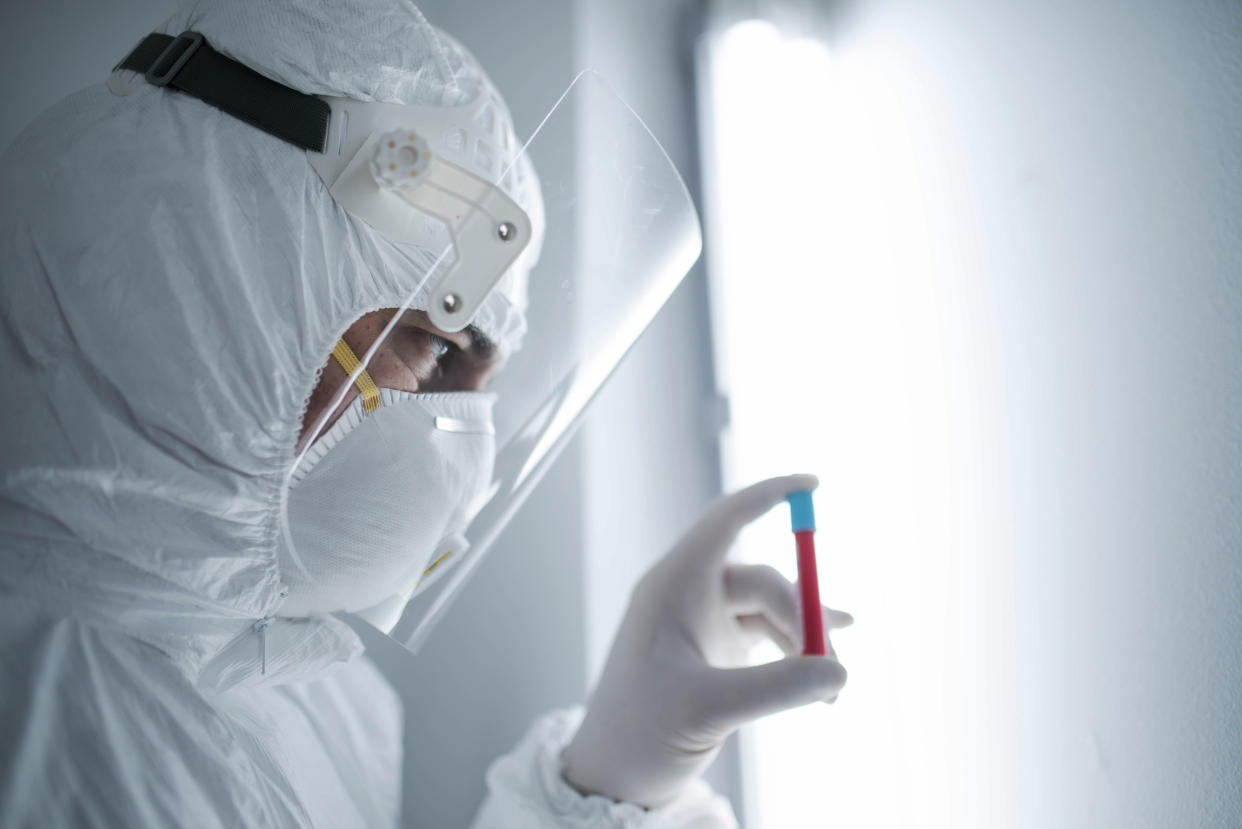Blood-thinning drugs could save lives, scientists say, after finding link between COVID-19 and blood clots in lungs

Blood-thinning drugs could help save lives of coronavirus patients, according to medical researchers who say they have discovered a link between COVID-19 and blood clots in the lungs.
Specialists at Royal Brompton Hospital’s severe respiratory failure service found a clear link between the virus and blood clotting - meaning it would be possible that anticoagulants could eventually help save lives.
The experts used hi-tech CT scans to take images of lung function in critically-ill patients, finding that those tested suffered a lack of blood flow, suggesting clotting within the small vessels in the lung.
Royal Brompton said this could potentially explain why some patients are dying of lung failure through lack of oxygen in the blood.
Doctors believe that careful use of blood-thinning drugs could eventually save lives — but only after careful testing.
They said blanket use of anticoagulants would not be appropriate and any treatment would have to start very early to prevent clots forming.
Latest coronavirus news, updates and advice
Live: Follow all the latest updates from the UK and around the world
Fact-checker: The number of COVID-19 cases in your local area
6 charts and maps that explain how coronavirus is spreading
Dr Brijesh Patel, senior intensivist and clinical senior lecturer at Royal Brompton and Imperial College London, said: “These are very unwell patients but I think the majority of patients will end up on significant therapeutic doses of blood-thinning agents as we learn more about this disease.
“If these interventions in the blood are implemented appropriately, they will save lives.”
Other European studies found signs of blood clotting in a third of coronavirus patients, but Dr Patel said doctors would “have to be cautious” with how they worked with blood thinning agents to make sure they didn’t cause any harm.
“There are a variety of blood-thinning agents as well,” he said. “Which (drug) you use depends on the patient so we have to have a more personalised medicine approach.”
Professor Peter Openshaw, a specialist in experimental medicine at Imperial College London and honorary physician at St Mary’s hospital, said: “It does sort of explain the rather extraordinary clinical picture that is being observed with people becoming very hypoxic, very low on oxygen and not really being particularly breathless.
“That would fit with it having a blood vessel origin.”




